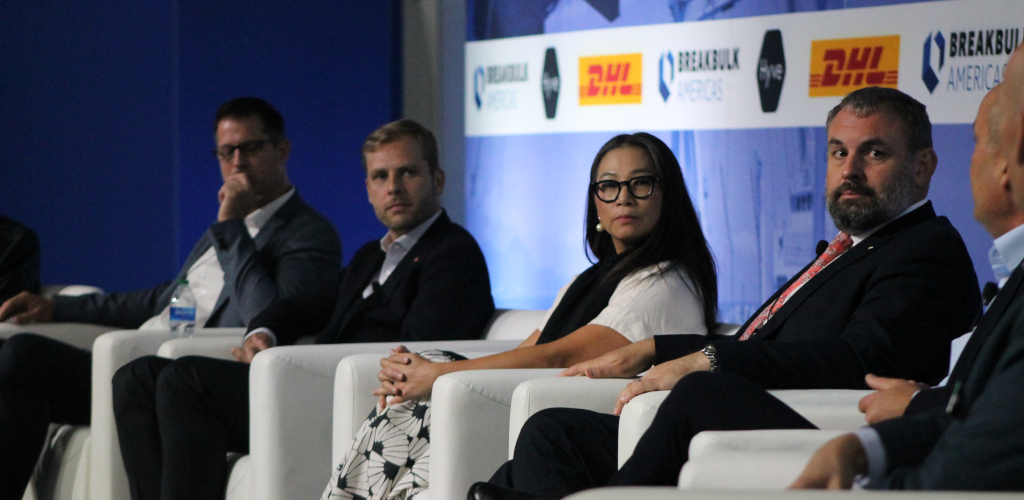Sep 29 | 2022
New Rules Effective in January Temper Industry’s Cautious Optimism

A new set of carbon taxes coming into force next year poses a major challenge for the industry, panellists at an industry outlook session said at Breakbulk Americas 2022.
The new IMO and EU rules aimed at decarbonizing shipping have shippers, forwarders and carriers working overdrive to figure out the impact on existing contracts and how they reshape future contracts.
“We have a lot of questions about the EU emissions standards that are going to be starting just two months from now,” said panellist Anders Hyrup, president of Jumbo-SAL-Alliance USA.
“Shipowners are being taxed based on emissions. How are we to bill that to our clients, especially if we have multiple cargoes on our ships. Who exactly is going to pay for what? It seems everybody agrees that there is no agreement.”
“But it goes into effect from 1 January and the shipowners will be billed and somehow we have to find a solution for the entire industry. The only thing that is a known is that ultimately it is the consumers who will have to pay for this.”
Steve Hill, director of global operations – logistics and trade compliance at McDermott and session moderator, described the new taxes as one of the industry’s “big unknowns”, and asked panellists how the industry planned to adjust.
“The big concern right now is how to handle these taxes and the CRI and what we are going to do with that,” said Michael Lund, deputy secretary general of shipowner association BIMCO. “And we are investing a lot of resources into cracking that.”
The panellists also provided delegates with an overview of current market conditions.
The pandemic, the Suez Canal incident, labour shortages and strikes, fuel escalation and conflict in Ukraine have upended global supply chains in a short space of time.
The project industry meanwhile has been contending with sky-high freight rates, with little consensus on when they will return to ‘normal’. Capacities have been at a premium, with little room for manoeuvre.
“Because the supply chain has been so stretched, the impact of any little disruption is magnified more and more,” said Ben Collins, global project cargo manager at MSC. “What makes it so complicated is that it is not because of one factor.”
Referring to rates, Torben Waalkes, vice president, global head of marine chartering at DHL Industrial Projects, was confident the industry would have to adjust a “new normal”.
“There will be a new normal for sure. Will it be on a higher or lower level? From our perspective, we would say we hope it is on a fair level where shippers, carriers and forwarders are on a certain level where we can all survive.”
Still, panellists were optimistic for the near-future, despite the geo-political uncertainties.
“We are as an industry in a very good place,” said Felix Schoeller, commercial director at AAL Shipping. “The industry has recovered and there is a lot of demand for cargoes.”
“If the industry wants to master the challenges that are ahead, then it has to work together. And that goes through the whole value chain - shipper, logistics companies, maritime operators and regulatory bodies.”
Dea Chincuanco, assistant vice president commercial and chartering at dship Carriers, also said key was collaboration throughout the supply chain.
"We compete with each other, but we can do this in an amicable way. With what is in front of us, we really have to put the problem-solving cap on."
Hill finally asked panellists for a word of advice for shippers. The consensus was to book well in advance to mitigate the risk posed by supply chain disruption.
“You need to talk to your carriers much earlier. Do not assume you will find a vessel two weeks before a shipment,” Anders said.
Check out our interviews with the session panellists:
